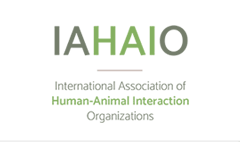Abstract
The island of Hawaii exhibits extremes in dog welfare ranging from dogs as family members to dogs used as commodities, either as guard or hunting dogs, with many lacking appropriate care. This study offers a preliminary exploration of people’s attitudes toward companion and noncompanion dogs and the health and welfare implications for humans and dogs. Data collection included interviews and surveys conducted among 20 companion dog/human and eight guard dog/human dyads. Blood pressure (BP) was monitored during interviews to assess stress. The results of the interview data led to five themes. The first two themes describing contexts of dog welfare and the constraints surrounding advocacy are strongly interrelated. The third theme on the cultural constructs of hunting increases our understanding of attitudes toward dogs in this part of Hawaii. The fourth theme highlights the benefits of having a dog in various settings with the fifth theme outlining participant suggestions for improving the conditions of backyard guard and hunting dogs. Companion dog keepers differed significantly from those who had guard dogs for the Dog Attitude Scale score (F(3,26) = 1.36; p = 0.016) indicating that the companion group had a more positive attitude toward animals. Baseline BP had a statistically significant negative relationship with Animal Attitude Scale score where a one point increase, indicating a positive attitude toward animals, resulted in a 0.35 mmHg decrease in baseline BP (Adj r2=0.19; F(3,27)=3.34; p < 0.05).
Recommended Citation
Morrison, Lynn; Adrian, Julie Ann Luiz; Kelley, Marina; Hill, Johana; Tman, Zachariah; and Ko'omoa-Lange, Dana-lynn
(2021)
"Attitude toward Companion and Guard Dogs in Hawaii: Health and Welfare Implications,"
People and Animals: The International Journal of Research and Practice: Vol. 4
:
Iss.
1,
Article 5.
Available at:
https://docs.lib.purdue.edu/paij/vol4/iss1/5
Included in
Animal Studies Commons, Biological and Physical Anthropology Commons, Public Health Education and Promotion Commons


